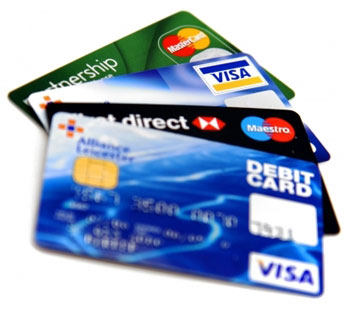Jessica Faz
The Signal

When I open my wallet, I see many things: a coupon for McDonalds that I’ll never use, a tooth-shaped sticker reminding me of my next dentist appointment, an array of expired student IDs chronicling my previous academic institutions and a few plastic cards with shiny VISA logos.
Like most college students, these cards are my go-to method of payment. Whether my purchase is $2 or $20, I always pay with plastic. Indeed, my affinity for swiping my card has caused me to replace it twice before its expiration date due to the weathering of the magnetic strip.
It’s true. I love my debit card. However, I recently learned why debit cards are not as convenient as they seem.
A couple of weeks ago, I purchased a frappuccino at Starbucks. At first, nothing was out of the ordinary. I shoved the crumpled receipt in my pocket and enjoyed my drink. Although all seemed normal, I had unintentionally used a shadow line of credit.
My checking account had been empty. When I checked my account a few hours later, I discovered that I had unknowingly received a $4 loan accruing an extremely high fee. My $4 frappuccino actually cost almost $40 due to a $35 overdraft fee.
This incident led me to discover the dysfunctional nature of the market. I soon learned banks have devised an extremely profitable system designed for customers to rack up outrageous fees.
It wasn’t long ago that if I had no money in my bank account, my debit card would have been declined. If that were the case, I would have left Starbucks thirsty but not in debt. Alas, I am left wondering, when did it all change?
Currently, most banks process debit card transactions, bill payments and checks from the highest dollar amount to the lowest dollar amount instead of in the order the transactions occur. This nifty trick helps drain customer bank accounts faster, resulting in more overdraft fees.
Therefore, customers like me who use their debit cards for multiple small purchases could be charged hundreds in overdraft fees simply due to the order in which their purchases clear their bank.
The Federal Reserve Board estimates the banking industry makes up to $38 billion a year in overdraft fees. These practices are nothing short of profiteering. Fortunately, that will soon change for one major bank.
On Aug. 10, a federal judge in California ordered Wells Fargo & Co. to stop posting transactions in high-to-low order by Nov. 30 and to reverse overdraft fees that were charged to customers from November 2004 to June 2008, in response to the class action lawsuit Gutierrez, Walker, Smith et al. v. Wells Fargo Bank, N.A.
A study cited in the decision put the restitution at more than $200 million. While this number is huge, it is a mere fraction of the more than $1.4 billion in overdraft penalties Wells Fargo handed out in California alone between 2005 and 2007.
While Wells Fargo will undoubtedly appeal the ruling, it is a score for consumers. Hopefully, the decision will set a precedent for similar suits in other states against approximately 30 banks including Bank of America, Citibank, Chase and Union Bank.
This decision comes on the heels of the Federal Reserve’s November 2009 ruling that overdraft fees cannot be charged on most transactions unless the consumer consents to having overdraft coverage. The new rule came into effect Aug. 15.
However, these are mere baby steps in the right direction. The rule fails to address the most deceptive problem with the overdraft feature: processing transactions in high-to-low sequence.
In essence, the banking industry is harvesting billions of dollars from the poorest Americans. And let’s face it, as college students we are among their favorite targets.
It’s a scary world out there for many consumers. The banking industry’s unfair and deceptive practices are beginning to make me hate to love my debit card.


How is this even legal? Banks are conartists these days. Ridiculous!
very helpful information. thank you, keep upthe good work.